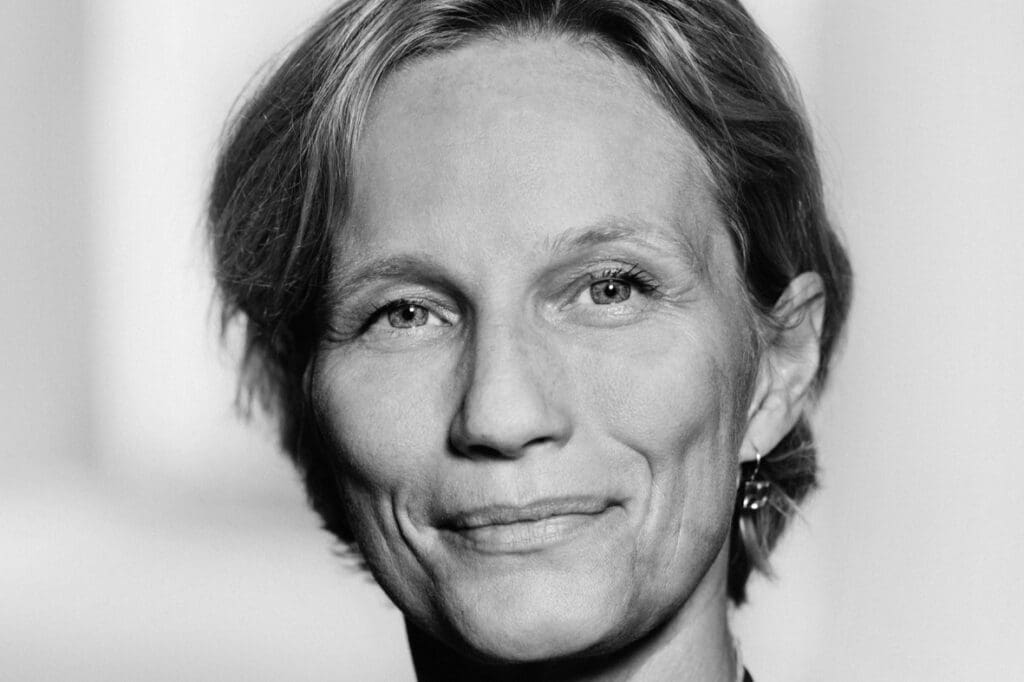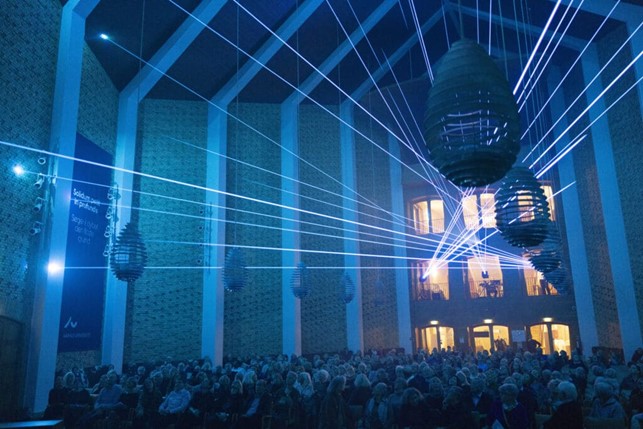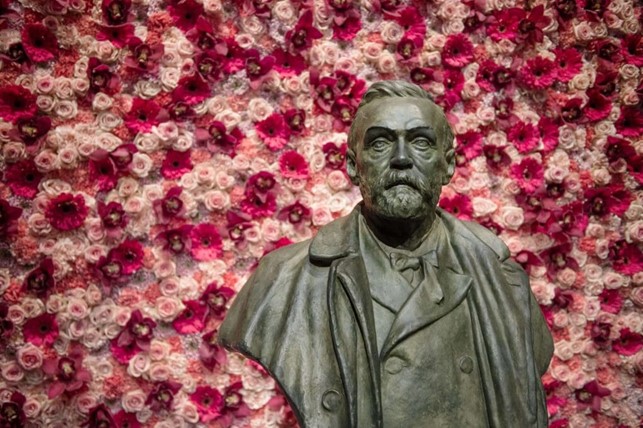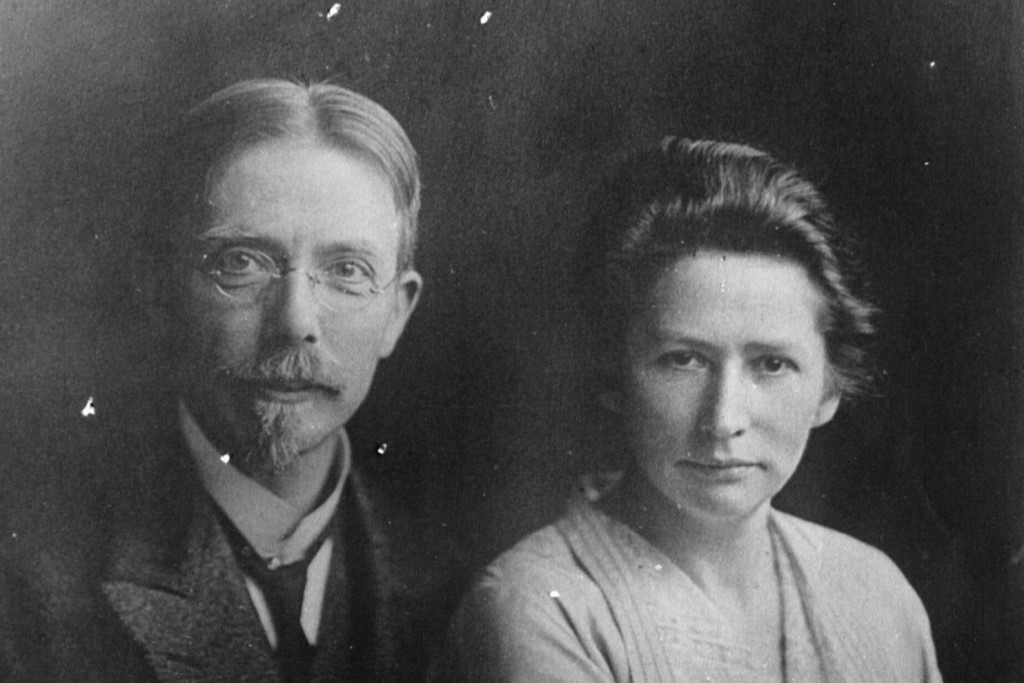New president of the Royal Danish Academy of Sciences and Letters

The new President, elected by the members of the Academy, is Marie Louise Nosch, Professor at the University of Copenhagen, historian specialized in ancient Greek history, and textile researcher.
When the counting of the votes was finalized on Thursday night, the Royal Danish Academy, a more than 275 years old institution, was ready to welcome a new president. This meant that a new person was about to tread in the footsteps of people like King Christian VIII and world-renowned nuclear physicist Niels Bohr – and, most recently, Professor at the Niels Bohr Institute Mogens Høgh Jensen. So naturally, at the appointment of her, Professor Marie Louise Nosch made no secret of her excitement – and humility:
– “I am very pleased about the trust that the academy members have showed me, and I look forward to take on this new task in an academy so prestigious and so rich in tradition and in which the heroes and heroines of science throughout time have been regular visitors, she says.”
Marie Louise Nosch is 50 years old, she is a historian and textile researcher, and since 2009 she has also been a professor at the SAXO-Institute of the University of Copenhagen. She is a member of the board of the Velux Foundation, and throughout her career, she has spent more than 13 years studying and doing research in foreign countries, primarily in France, Italy, and Austria. In Denmark, she has previously acted as Director of the Danish National Research Foundation’s Centre for Textile Research as well as vice-president of the Danish Council for Research Policy, and she has even acted as an adviser to the German government in relation to basic research funding. Therefore, she is highly equipped to take on the presidentship which of course is political and requires excellent skills within communication and representation.
– “Right now, we live in a time with a high demand for science, and the Royal Academy manages to bring scientific research from across all fields together. The Academy works to promote basic research and to support interdisciplinary co-operation, and those are the exact values I seek to represent in my own work.”
During the last couple of years, the Academy has gone through somewhat of a modernization which, amongst other things, has brought forth an increase in communication initiatives such as events at Folkemødet on Bornholm, open house events on Kulturnatten, and the celebration of the 200th anniversary of H.C. Ørsted’s discovery of electromagnetism. Furthermore, it has added to the focus on the Royal Academy’s impact in the media as well as its political impact. This development is something that the new president hopes to sustain, just like she would also like to facilitate an even more outgoing academy:
– “We are experiencing an increase in people’s demand for knowledge and science, and the members of the academy are happy to share their knowledge and insights concerning both topics of current interest like covid-19 as well as the wonderful world that is basic science in general. It is my hope that politicians and journalists too will use the Royal Academy as a resource in relation to scientific discussions to make sure that important decisions are scientifically based and made on a well-informed background.”
The election was originally supposed to have taken place in May earlier this year, but because of covid-19 it was postponed until September. The new president will take office as of today. She will be taking over the job from Professor at the Niels Bohr Institute Mogens Høgh Jensen who has acted as president since 2016 and who has, moreover, also acted as Secretary General of the Academy from 2012-2016.
For more information on the above, please contact Head of Communications at the Royal Academy Kristoffer Frøkjær on kf@royalacademy.dk
About Marie Louise Nosch
50 years old, historian specialized in ancient Greek history, and textile researcher. She was elected Director of the Danish National Research Foundation’s Centre for Textile Research in 2005, and since 2009, she has been a Professor at the Saxo-Institute, University of Copenhagen. Today, her title is ‘Professor in Ancient History’ at the University of Copenhagen. She has lived and worked in more than 13 foreign countries, primarily France, Italy, and Austria, and she is also a member of the Austrian Academy of Sciences. From 2011-2014, she acted as vice-president of the Danish Council for Research Policy, and furthermore, she is a member of the Exzellenzkommission that advices the German government on basic research funding, and a member of the board of the Velux Foundation.
In addition to this, she has (with Professor Jens Hjorth) established the talent programme at the University of Copenhagen called ‘UCPH Forward’, and she regularly participates in the public debate and press. Nosch has been a member of the Royal Danish Academy of Sciences received research awards from Einar Hansens Forskningsfond, from the Danish Association of Masters and PhDs, as well as the Anneliese Maier Award from the Alexander von Humboldt Foundation, the Tagea Brandt Grant, and the Iris Foundation Award from Bard Graduate Center, New York. She has been appointed Chevalier dans l’Ordre des Palmes académiques de la République Française and she accepted the Science Prize of Dronning Margrethe II in 2019.


